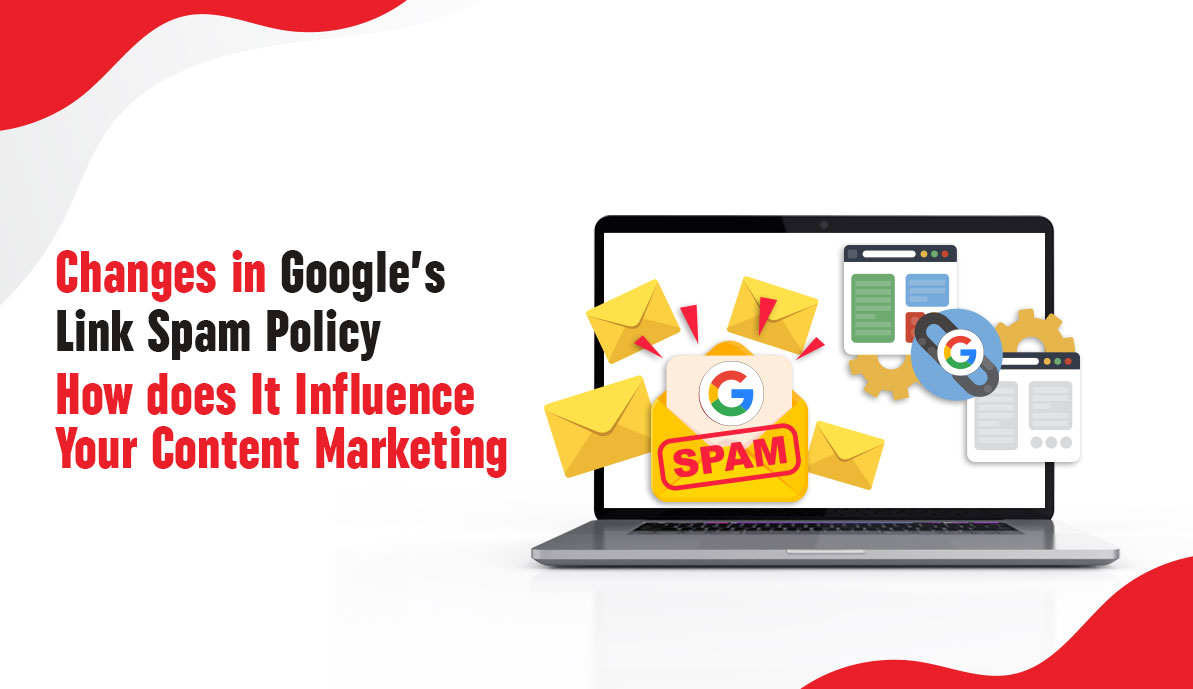Over time, Google’s search algorithm is constantly evolving to provide better user-oriented quality. Along the way, Google has introduced hundreds of updates to deter black hat SEO and make its search results more valuable.
In the past, keyword stuffing allowed websites to rank quickly, regardless of the quality of their content. The same behavior can result in your website being penalized or eventually deindexed from search results.
Google introduced its link spam update in December 2022 to “neutralize the impact of unnatural links on search results.” This update is expected to improve the quality of search results.
In this blog, we are going to discuss Google’s Link Spam Policy, focusing on how it influenced your content marketing strategy.
Google’s Link Spam Policy- what is it?
Google’s link spam update targets unnatural links, link spam, and other spam techniques that artificially increase the content authority of websites so that they rank in search results.
SpamBrain, Google’s AI-based spam prevention system, is used in the Google link spam update. SpamBrain, introduced in 2018, is Google’s most effective defense against spam and abuse of any kind. It discovered six times as many spam sites by 2021 as it did the year before. This resulted in 70% less hacked spam and 75% less gibberish on hosting platforms.
By using advanced SpamBrain algorithms, Google has detected and nullified link spam and sites engaged in buying links. The spam policy update takes two weeks to roll out. This update demonstrated Google’s commitment to improving user experience and content quality.
Backlinks, a major ranking factor
There is no doubt that backlinks are one of the major ranking factors. But it’s essential to understand that not all links are created equal and beneficial for your site.
In the past, content marketing and SEO strategies heavily relied on keyword stuffing and the number of links rather than their quality. However, Google’s algorithm has evolved to favor user-oriented content and organic, relevant links. High-quality links act as “seals of approval” and indicate to Google that your content is valuable to users. Implementing white hat link-building techniques, such as internal linking and inbound links from reputable websites in your industry, can help establish your website’s authority.
For instance, if you own an online makeup store, receiving organic links from beauty bloggers and fashion websites can significantly enhance your credibility.
Spam links harming your website ranking
While white-hat link-building practices contribute to your website’s success, black-hat tactics can lead to penalties and even deindexing from search engine results. Black hat SEO techniques involve manipulative practices aimed at gaming the system and inflating page rankings. Google’s link spam update specifically targets these spammy tactics. So if you have spammy links on your website, it surely harms the website ranking and reputation or can also lead to penalties. Some examples of black hat link-building practices include comment spam, redirect links, paid link spam, spam link exchanges, and link farms.
Comment spam
Comment spam is one of the most common types of spam that is used to increase the number of inbound links to a page found on high-traffic websites. Spammers post links through comments on popular pages to increase the number of inbound links from a high-traffic site. After the spam link update, you should rework your content marketing strategy and make sure your site does not have this kind of spam link.
Redirect links
Redirect links are another black-hat SEO tactic in which these links claim to go to one website but get redirected to another. This way a high number of traffic can be forwarded to an unknown URL. Redirect links can significantly boost a website’s bounce rate, leading to a drop in your ranking.
Paid links
Link building through outreach affiliates and paid links are not harmful if your inbound links come from relevant industry websites. But paid links that awkwardly refer to the industry where it doesn’t make sense to be, without a rel=nofollow tag or rel=sponsored, may be penalized.
Link farms
Link farms are low-quality websites that exist only to sell links to other sites. Google’s algorithm will flag links from obvious link farm websites, which can harm your website’s reputation and rank significantly.
Influence of Link Spam Policy in content marketing strategy
The link spam policy of Google significantly is going to impact content marketing strategies. Through this new update, if Google finds enough red flags that your website is using link spam tactics, there is a huge possibility that you may be penalized or deindexed from the search engine results page (SERP). So every SEO practitioner should shift their strategy to helpful content updates.
If you want to include inbound links in your content strategy, you should understand the difference between legitimate link-building and spam link-building tactics. Here are some considerations you should opt for.
Choose your guest blog site properly
One of the best ways to avoid spam is to choose a high-quality guest post site. However, there are many cheaper options available for guest posting with low domain authority and low traffic. But having an inbound link from their site can harm your website’s reputation and ranking.
Delete your spam comments
Having spammy comments on your website can also affect your website ranking badly. So disable your comment section if you didn’t need that so much, but it gets snapped by commenters. Or you can also moderate comments before publishing them on your website.
Avoid irrelevant inbound links
If your website is full of irrelevant inbound links, it could be a red flag that you are buying links from unreputable link farms. So avoid irrelevant links as much as you can. You can also take the support of content marketing and SEO agencies like Markethix to make a strong legitimate link-building strategy.
Final words
After Google’s link spam policy, websites with spammy links got affected so much. It would be best if you solely focused on bringing quality to your content to rank better. You can follow the above mentioned tactics to build a strong SEO plan to boost your website visibility and traffic. You are welcome to Markethix, one of the leading SEO service providers, to avail of its services and get wonderful results.





0 Comments